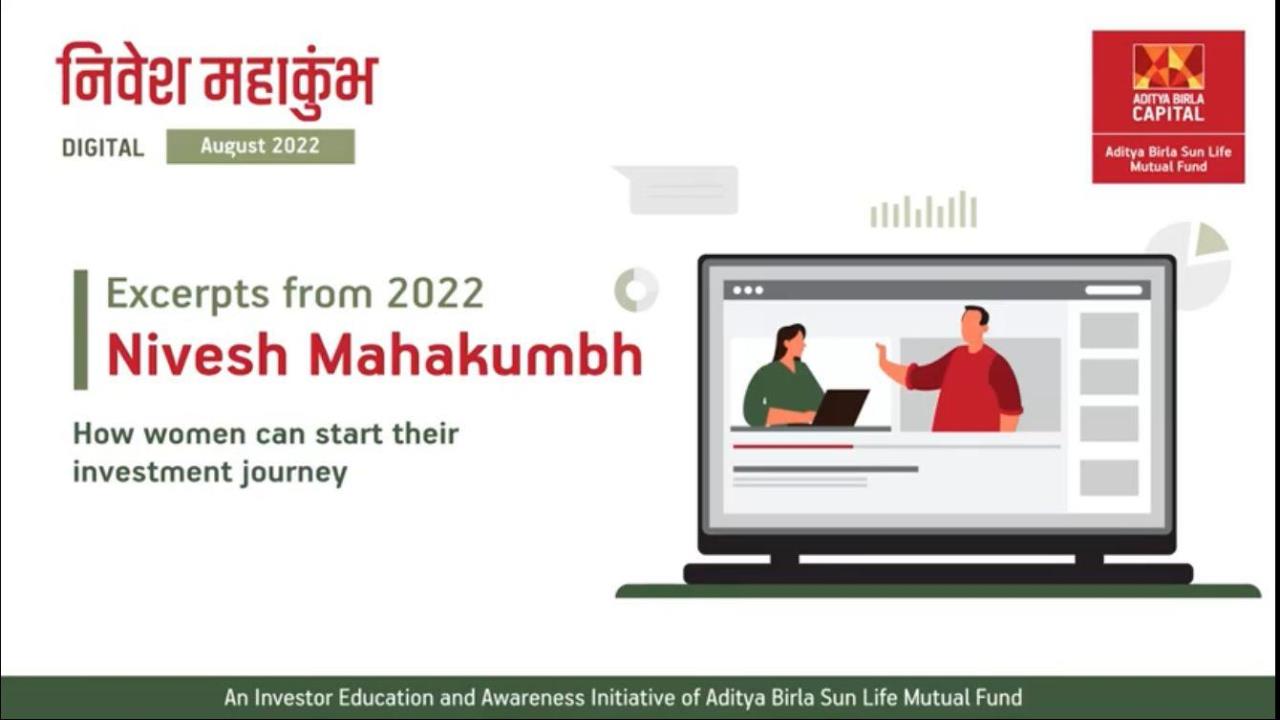2020 has been a hard year but has also been a year full of lessons. It has taught us the importance of family, friends and connections. It has forced us to learn new skills to cope with a completely online world. But, most of all - it has made us aware of the importance of Financial Wellbeing.
The path to improving your Financial Wellbeing, however, is fraught with shaky financial knowledge, negative perceptions and uninformed decisions
Improve Financial Knowledge
Did you know only 24%* of Indians are financially literate?
This means more than 75% of our population**
● does not actively save
● does not have credit discipline
● does not understand key financial concepts
● does not invest to beat inflation and achieve goals
● does not plan and invest for retirement
This lack of knowledge is impeding growth, increasing debt, preventing goal achievement and causing radical lifestyle changes post retirement. Overall, lack of financial knowledge is financially damaging.
Shake-Off Negative Perceptions
Despite the pitfalls of lack of financial knowledge, most of us are still terrified of managing finances. We perceive finance and financial products as complicated. This perception creates fear and makes it easy to go along with the advice of the salesman, relative or friend. The problem with this attitude is that these "well-wishers" do not know what is your current financial situation and what you hope to achieve. They may make wrong recommendations based on inadequate knowledge.
Make Informed Decisions
If you want to improve your financial situation, you need to shake off these negative perceptions, adopt a can-do attitude and ask yourself some tough questions.
Before investing always ask yourself the following questions:
1. What is my current financial state?
2. How much debt do I have?
3. Am I financially prepared for an emergency?
4. What goal do I hope to achieve by investing?
5. When do I want to achieve my goal?
6. What type of risk am I willing and able to undertake?
7. What can I risk at this lifestage?
By asking and truthfully answering these questions, you can gain clarity about your current financial situation and investment objectives. You can then leverage this knowledge to make an informed decision on whether the fund can help you achieve your goal.
Start On The Path To Financial Wellbeing
In addition to improving your financial knowledge, shaking off negative perceptions and making informed decisions, you can also employ the following steps and strategies to take control of your finances, avoid financial pitfalls and achieve your goals:
Be Aware of How & Where You Spend Your Money
Most of us have a vague idea of how much we earn and spend each month. And, as long as we don't fall short - we are typically ok with this state of affairs. The truth is to improve your financial situation you have to Be Aware of How and Where you Spend your Money.
Step 1 on your journey to financial wellbeing is Budgeting. You need to sit down, list down where you spend your money and be prepared to learn some truly mind-boggling facts.
For example, it may show you that you spent too much time at coffee shops and your coffee habit is more expensive than your electricity bill. This knowledge should make you more mindful of your spending habits and free up more money for new habits such as 'wealth creation'.
So, take some time out of your busy schedule and create a budget.
Know, Track & Monitor your Debt & Interest Rates
Once you have created your budget, you should have an at-a-glance view of your debts. If you're one of the rare few who doesn't have debt - Kudos! For the rest of us, who have some form of debt - a home loan, a car loan or maybe credit card bills - Step 2 is to Know, Track and Monitor debt and interest rates.
Debt can go from manageable to overwhelming if you do not track it. Add a column to your budget and list down who you owe, how much you owe and when payment is due. Automate the payment wherever possible. If you are using an online system, setup reminders to ensure you pay on-time. This should hopefully prevent you from adding hefty penalty fees to your interest laden debt.
Another great way of keeping debt under control is paying it off early whenever possible. For example, you can use part of your Diwali bonus to pay a bigger portion of a high-interest debt.
Note: If your home loan is tax deductible, you may want to skip it and choose the next debt with high interest.
Following this strategy should help you eliminate debts earlier and should potentially free up resources to invest for future dreams.
Plan & Invest To Manage Emergencies
No one likes thinking about what would happen if you fall ill, lose a job, have an accident or experience a natural disaster. Not thinking about bad situations doesn't prevent them from happening.
An emergency is one of the quickest routes to gain an overwhelming amount of debt. This debt may not be to pay medical bills or repairs, rather to pay for essentials such as utility bills, groceries, rent, school fees and more.
Step 3 on the path to Financial Wellbeing is planning and investing for Emergencies.
An Emergency Fund or a Contingency Fund should give you a financial cushion (6 to 9 months of current salary) that should potentially take care of essentials while you hunt for a job and get back on your feet.
A simple strategy when building a Contingency Fund is to automate the process and set smaller achievable targets. This should prevent you from getting demotivated and keep you on-track.
Start Early and Invest Regularly
Now that you have a fair idea on why you need to create a budget, how to manage your debt and why you should prepare for emergencies, it's time to look towards the future. Step 4 is to Cultivate an Investment Habit.
Cultivating an investment habit is like growing a tree. You need to plant the seed i.e. start an investment. Without this action, nothing will grow. And, if you wait too long, it may not grow enough fruit to sustain your lifestyle.
One of the simplest and most effective routes to cultivating and sustaining an investment habit is starting a SIP (Systematic Investment Plan). A SIP gives you the flexibility to choose your investment amount (as little as ₹500), the investment frequency (monthly, quarterly, annually) and the investment duration, which increases the possibility that you can achieve your goal in-time.
So, stop waiting for the right amount and time and start empowering your investments and maximizing your earning potential with the power of time.
Invest With Purpose
Take a moment, close your eyes and picture all the goals you want to achieve during your lifetime. Goals like a new phone, a luxury car, a dream home, a world tour, great schools for your kids, retiring well etc.
Step 5 on your Financial Wellbeing journey is Investing with a Purpose. List down every goal and an approximate timeline of when you would like to achieve them. Cross reference your dreams with your budget and determine how much you can invest for each goal. Now leverage this information to choose the suitable fund to achieve each goal.
Using a Goal-Based investment strategy can help keep you motivated and increase the potential of achieving them on-time.
Monitor & Manage your Portfolio
You are taking great effort to improve your Financial Wellbeing. The last step you need to take is Monitoring and Managing your Portfolio.
An investment is like a tree. You cannot start it, forget about it and still expect it to bear plentiful fruit. To encourage growth, you need to check on your portfolio regularly. Make sure all the funds are performing well. Prune any investment that isn't doing well. You should also assess your priorities annually and reallocate assets if your goals have changed.
These measures should help you make sure you are on-track to achieve your goals on-time. You can use various apps available to monitor your portfolio, track performance, set up new investments and more.
By following this key to Financial Wellbeing, you should be able to avoid financial pitfalls, increase your personal financial security and improve your potential to achieve your goals on-time. Start Planning Now!
An Investor education and Awareness initiative of Aditya Birla Sun Life Mutual Fund
All investors have to go through a one-time KYC (Know Your Customer) process. Investors to invest only with SEBI registered Mutual Funds. For further information on KYC, list of SEBI registered Mutual Funds and redressal of complaints including details about SEBI SCORES portal, visit link : https://mutualfund.adityabirlacapital.com/Investor-Education/education/kyc-and-redressal for further details
Mutual Fund investments are subject to market risks, read all scheme related documents carefully
* The Global Financial Literacy Excellence Center
** National Strategy for Financial Education 2020-2025





 1800-270-7000
1800-270-7000






















